The Endings of Evangelion: Exploring Shinji Ikari
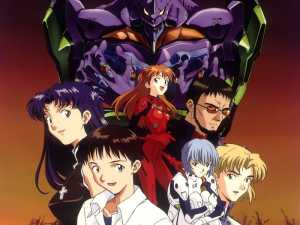
Neon Genesis Evangelion is a particularly strange conundrum among fans of Japanese animation. In terms of popularizing anime in the West, this show is considered to be one of the more influential and important anime series of the 1990’s. However, much of this is rooted in the historical framework of the period. During this time, anime viewership was primarily focused on battle shonen such as Yu Yu Hakusho and Dragon Ball. Outside of the Gundam franchise, giant robot shows had ceased to be at the pinnacle of their popularity and shifted into passe consideration. Evangelion changed all that and breathed new life into the genre.
In addition to returning to the formula of having giant robots battle giant monsters, the mechas and their alien opponents were given more unique designs and origins. Also, the series brought forth complex characterizations and layered existential themes. This was a significant contrast to the more straightforward archetypes which typically dominated these types of shows. Today we shall be focusing on the conclusion of the series, both within the final two episodes and the film continuation. Despite its influence, this series has almost as many detractors as it does fans. The conclusion to the show is at the very heart of the matter, serving as an example of what makes this series so challenging for many..
Existential Crisis
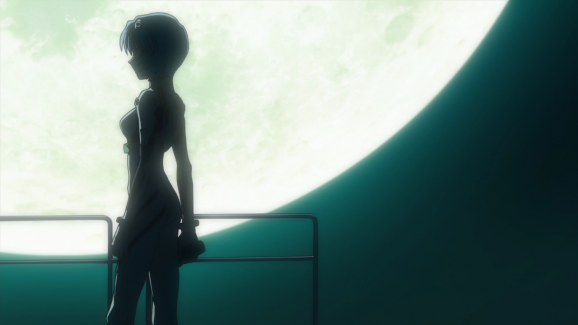
Though the series is rife with heavy religious symbolism and complicated mythology, the primary source of controversy has always been one element. That would be the main protagonist, Shinji Ikari. At first, Shinji seems to fit the criteria for most main characters of your typical action anime. He’s an adolescent with strained relationships with his parental figures. He also happens to be one of the few people in the world with a fantastic ability. Shinji is one of a small number of teenagers who can pilot the Evas. These are giant robots fused with DNA of the invading monsters, bizarre aliens simply referred to as Angels. Piloting these machines and facing down these terrifying forces is a great deal of psychological strain on Shinji and the other pilots. This type of situation would have this effect in any narrative emulating aspects of human behavior. Shinji creates a very interesting perspective on the relationship between the viewer and the fictional work.
Audience and Character Relationships
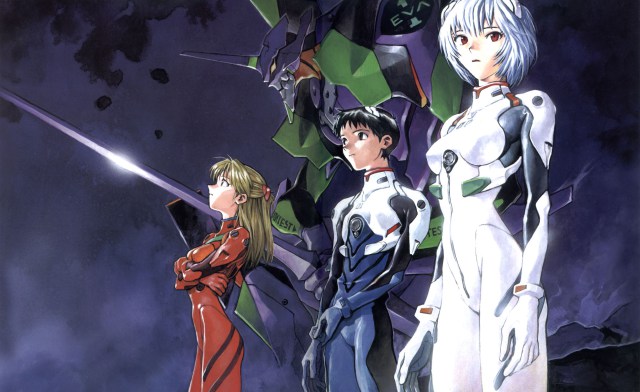
All pieces of art are meant to evoke an emotional response. They are products of the creator’s own imagination based on personal experience or belief. Some are more blatant about it than others (like Evangelion) and all are transformed when experienced by the viewer. We all have different personalities which influence our reaction to something on a basic level, influencing our reaction to certain stories or characters despite any variation in the quality of the writing. Most anime fans seem to measure their enjoyment of this series on how they see Shinji. Many fans have expressed that they simply dislike Shinji because he’s an overly emotional teenager. He’s constantly doubting himself and stumbles in combat. He rarely stands up for himself when confronted by his peers and spends much of his downtime moping in the dark. It’s interesting that such an aspect which caused Evangelion to be elevated to legendary status has created such a large number of detractors. Most main protagonists of earlier mecha shows followed young men who were more sure of themselves. In fact, most action shows in the anime medium are focused on confident male characters.
This certainly makes sense. In a fantasy narrative, it’s much more compelling to follow a character a viewer can see as uplifting. We all wish to for heroes we can aspire to emulate. Confidence keeps the story going. For instance, many younger male viewers tend to gravitate towards more confident main protagonists.We look for many of the same attributes in our world leaders that we do in fantasy genres. We want proactive characters to follow who will go up against incredible odds. It’s very easy follow this type of character. However, much of fiction can provide more challenging understanding and exploration of its characters. Shinji is placed in the same type of scenario as many before him. Unlike his predecessors though, his reaction to his incredibly stressful situation is more believable than that of most characters presented in similar shows.
The original Gundam series, Mobile Suite Gundam, set the stage for expectations within the genre. This was primarily through the main protagonist, Amuro Ray. Amuro was a headstrong and brave hero, but actually helped establish the foundation of self-doubt and philosophical introspection. Shinji would be used as a catalyst to enhance and push the boundaries of established standards in the mecha narrative. Evangelion presents us with a fourteen year old boy with the fate of the world thrust upon him. On top of his place as a messianic figure, he is forced to contend with the loss of his mother and a father figure who is beyond demanding. He’s manipulative and essentially evil. Shinji must also experience pressure from those who work alongside him, with most treating him as a tool and not as a human being.
This is a series that defies most expectations. Perhaps it was not presented as smoothly as many series that would follow, but Shinji breaks conventions of the typical hero. He’s complex. He’s flawed. He’s human. This presents us with a common deviation between two basic types of fiction and what viewers expect from them. One one hand, you have your typical series that follows are hero who isn’t complicated and offers high aspirations. Such a hero is indicative the viewer’s desire to look up to a mythological figure as a model for great deeds. On a basic level, we all want to do great things and accomplish some great contribution the world. These characters offer extremely high platforms to reach. They may be unrealistic, but offer the best ideal view of humanity.
Equally common in fiction is the hero that is directly modeled on realistic human reactions. These types of stories and these characters offer a deeper explorations of the problems we face day to day in external and internal situations. Typically, these types of stories are meant to be more challenging and enriching, though they may not always be pleasant viewing experiences. Many types of fiction try to combine some elements of the two, creating both an entertaining and enriching experience. However, most stories either fall more into one category over another. Some attain to be high-concept explorations of deep themes. Others aim to be fun escapist entertainment. Both certainly have their place and any story probably needs a bit of both. Evangelion and Shinji simply offered a drastic change in a genre that had been stagnating for some time. Essentially, most viewers seek out mecha anime with the expectation of fun adventure. Evangelion is really anything but this. Such expectations regarding the genre have a had a backlash which has lasted decades.
Two Equally Controversial Endings
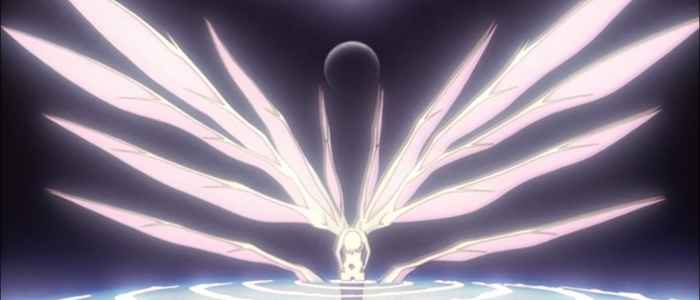
While Shinji may certainly not be the most appealing character for many, his eventual fate can create an even more challenging experience for even the most ardent fans of the series. First, we must consider the primary ending of the anime series itself. Upon facing the final opponents and with the end of the world upon him, the series dips completely into the surreal.
Shinji seems to enter a dream like state in which he confronts all his own personal demons. All of is insecurities take place within an internal dialogue, building upon one of the primary elements of his characterization. He also faces visions of all of the people in his life representing all his most basic fears. His insecurities over the loss of his mother, his strained relationship with his father, his sexual insecurities and his place as a hero are all covered. Shinji Ikari asks all the most difficult and fundamental of questions in regard to human existence. The universe has sent a major threat to mankind. These monsters force the characters to face some very difficult possibilities.
The series uses these creatures to tackle some very difficult philosophical concepts. Are they a means by which some great intelligence has determined that mankind must be wiped out? Are they simply another example of chaos in an uncaring universe? Should mankind fight for survival due to a natural right? Or should we succumb to our fate in such circumstances? Shinji asks many of these questions, simply seeming to transcend his own reality and see the greater picture. Now, while it could be suggested that some metaphysical transformation did happen…most audiences wouldn’t be able stomach such a conclusion. Even with all the ambiguity of this series, most audiences like a kind of clearer resolution. In terms of the reasons behind the final two episodes, it was primarily due to budgetary reasons. Even so, it offered a very beneficial aspect of Shinji’s ultimate development.
While certainly not presented in the most conventional way, Evangelion is far from a conventional series. Though rather surreal and bizarre, the final two episodes actually do allow Shinji to fully complete his growth as a person. Much of the series is at its core, much like most mecha series, a tale of personal growth.
Despite being a flawed adolescent, Shinji still does face the horrors presented to him. He may not be the easiest character to rally behind, but his lack of confidence makes his victories all the more satisfying. It’s much easier to expect a character to succeed when they seem easily established in that mentality. Someone who has to struggle to achieve such victories…has a more interesting journey ahead of them. Though the final conflict of the series doesn’t conclude with a major physical battle, it resolves with a form of spiritual transcendence. Shinji learns to accept himself and appreciate all that he has experienced. He does not end the series in tears, but actually matures into an adult. In truth, this ending is essentially considered to be an alternate version taking place entirely in Shinji’s mind. Though it does offer a solid resolution to his growth, much of the actual events of the series are left unexplored. This was truly frustrating for many fans. This of course leads to the second part of the ending, the film title End of Evangelion. It was mentioned earlier in this article that all art is to some degree an expression of the creator.
While creating this series, Hideaki Anno was apparently going through some serious struggles with depression and spiritual identity. This easily bled into the foundation of its series. Interestingly, the series does seem to primarily attract adolescents. For an age group very focused on struggles with identity and general angst, this makes sense. The reactions to the ending of the series were divisive to say the least. Some fans have suggested the ending was spiteful in terms of the direction. While there is no way to confirm anything for sure, it’s rather understandable. In fact, the most positive aspects of Shinji’s development have been completed overshadowed by the film.
The movie offers final resolution to the fate of various characters. Essentially, all the characters die as the final part in a scheme to use Shinji, the Eva and the Angles to remake the universe. Not only do all the beloved characters die (most of them gruesomely) but the resolution is arguabley more surreal and confusing than the the ending the series. The final main sequence shows the transformation of Rei into an supernatural figure, literally reshaping the world. This sequence is stunning and though provoking, but is presented in such an forced manner that it seems rushed an confusing even within the the confines of the plot. If the film is supposed to provide more concrete answers for the narrative…all it really does is create more questions for the audience. The most frustrating aspect of the ending, the fans and detractors alike, is the final (and all too concrete) presentation of Shinji.
For better or worse, Shinji is at the center of this tale. His experiences have been difficult, but the the dream-like ending of the show did provide some forward motion for his character. While not the most exciting of endings, it did allow Shinji to grow and ended the story with some vague idea of a hopeful future. This future may have been a dream, but at least it was a good one. The “official” ending seems to completely contradict the best ideas in the ending of the anime.
The new universe is presented, with Shinji being placed as the all powerful, omnipotent god. Shinji has continued the film much in the same manner as he has throughout the show. He whines, cries and lashes out at everyone. Earlier in the film, he even masturbates in a hospital, while his female counterpart, Asuka, is incapacitated. For many, this represents the reason why so many people hate Shinji. Despite his adolescent frustrations, it is very difficult to present such a scene without making the main character seem disgusting.
To make matters worse, Shinji’s first real act as the god of a new universe is to bring Asuka back into existence to comfort him with his unbelievable responsibility, compounded with extraordinary loneliness. As if to solidify perceptions the audience has had, Asuka simply utters a statement of how pathetic Shinji is. Shinji simply weeps and the film ends. For fans of the series, it presents viewers with the idea of that a character they continued to follow is simply not worth following. In all basic narratives, a character starts at one place and eventually moves on. Stories emulate life. Therefore, characters grow as people do. Shinji either stays at the same point he was always in, or worse, actually regresses. Once again, we return to relationship between the creator and the viewer. Anno may very well have been retaliating to the reactions to the original ending of the series. It’s difficult to say. Regardless, fans have to accept the work and come to terms with it in some way.
On a thematic level, perhaps Anno was stating that humanity is the only great force in its world and we must all live with our own flawed identity. This is much clearly expressed in the ending of the series, but the film presents it in the bleakest way imaginable. Even for fans, this doesn’t make for a pleasant end to a viewing experience.
The Challenge of Fiction
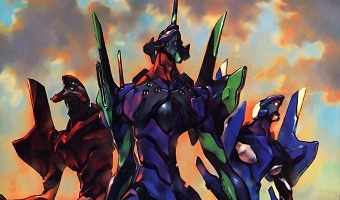
Fiction can often be challenging, but few successful writers and artists make an impact without characters for their audiences to root for. Whether or not audiences find the series or either of the endings enjoyable, it’s important to remember why Evangelion is such an important work. Much like the manga Akira or the film Ghost in the Shell, Neon Genesis Evanglelion is a series that helped to redefine what types of stories animation can tell. In both Japan and in the West, this series has challenged audiences to explore difficult ideas through complicated characters. Many anime series and films, even outside of the mecha genre, have used this show as a foundation to tell unique and thought-provoking tales. While the film may leave even the most devoted fans with bitter tastes in their mouths, Evangelion redefined our perception of what types of stories the mecha genre and its heroes can tell.
What do you think? Leave a comment.


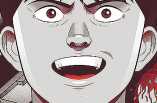

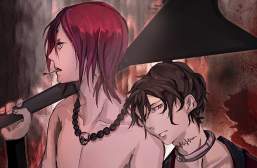
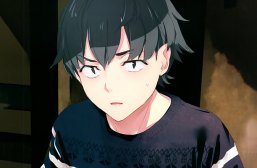
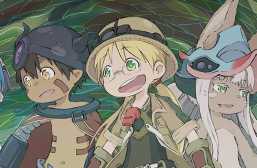
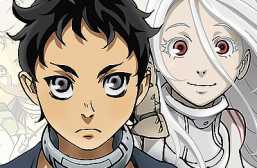
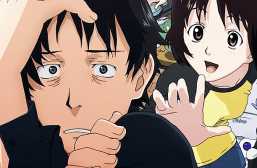
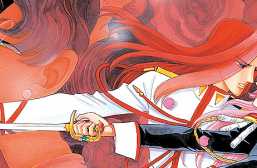
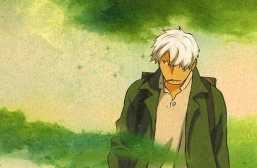
I would safely say that The End of Evangelion is probably the darkest anime I’ve watched. It invokes a surreal and depressing feeling I have not felt with any other anime. I’ve always described it as if David Lynch directed and anime. As for Shinji himself, I probably would be in the camp that doesn’t like him, but I wouldn’t go far enough to say I hate him. I appreciate the series trying to explore depression and how that would effect a typical anime lead character. Thanks for the fantastic article
There is certainly a Lynchean atmosphere to the series.
I was burning my neurons trying to understand some points.
This series isn’t easy to absorb.
I thought this would help me understand evangelion a little better but I’m just more confused now. This anime is so confusing.
I’ll be my best to expand on any questions.
Big aliens invade Earth, robots that are actually creatures need to be used to stop them, only motherless teenagers can pilot them. Crazy shit happens and then the world ends while Shinji screams his lungs out. The end.
This series is awesomeness. I love Evangelion since I finished the anime Now i’m gonna buy the manga because it’s god-tier.
The whole part with seeds of life and knowledge was so ambiguous I could never figure out if they were speaking figuratively or literally or just talking in riddles in the series. Im glad I understand fully. But still the whole time watching the series I thought wtf is going on!?!
Helpful presentation! Good job!
Thank you!
Very dark ending!
Thank you for explaining this b/c the show sure didn’t!
This anime is one hell of a masterpiece, its by far my all time favorite and I don’t think that anything would ever take its place.
I thought that the eva stood as proof man existed and even without shinji yui’s soul along with Eva stand as a testament to that for the far future.
I really tried hard to understand what was happening at the end of evangelion. I rewatched everything now 3 times and even though i got every time more and more information out of it.
Great explanation. Really helped.
Glad it did!
I loved the movie but was confused by some things and this explained it nicely =) Now my question…what are the rebuild movies in comparison to the original anime? Also, should i check them out?
They do a good job of condensing the series but then go a radically different direction. I enjoyed them. Check them out!
Great explanation!
Actually, I think the big thing the series’s get going for it is its reamarkably realistic character building. And by realistic I don’t mean they actually look like real people (that would be impossible), but that they feel alive. To mention an extreme example within the series, Ritsuko’s obsession with Gendo, which she mistakes for love and is probably just the result of Gendo’s manipulation of a woman with serious human relations and emotional issues (smokes too much, acts cold around everyone, is obsessed with cats but refuses to mourn when told her cat died, etc. etc.) makes her not only a pitiable figure, but a person in her own right, wothy of our atention and interest. Much like Shinji. And for anyone who thinks he’s hateful (never got the whole I-hate-Shinji thing), just compare him to trully evil characters in anime (no, I don’t mean Gendo. He’s obsessed too, so focused on his dead wife – his only source of hapiness – that he gest bling to everything else around him, including his son, having convinced himself that everything will be all right once instrumentality is completed. And he was a caloused guy to begin with. Yue doesn’t seem much better than him, if we’re to believe the manga. Even PenPen is convincing and lovable, and not merely as a pet. That look of disaproving contempt he gives Shinji when they first meet and PenPen is reading a newspaper is to die for! Everyone in the anime, even the sidest of side characters, get some time in the spolight one way or another to prove to us they are people of flesh and blood we should care for. Of course they’re not, but the caring is very much real and, as I said, I believe it to be responsible for the series enduring success.
Masterpiece.
Thanks for making sense of this cluster mind hell!
I just finished watching The EOE movie and i was still kinda lost.
Thanks for this, the only thing I could really get after finishing was “What the hell did I just watch”. The series starts out looking like it’s about human psychology with the Angels as the spurs for the drama, kind of like The Walking Dead, but then it turns out that the whole thing is a confusing and twisted story with gods and unification and freaky space-demon-things (but still a lot of psychology).
This is outstanding thank u so much. Such a great show… Thank u so much!
i dont understand why everyone found it so confusing. I just watched the anime series and the end of evangelion and understood everything just fine.
This really helped me get the whole idea even more but the one thing I still don’t understand is why were Shinji and Asuka there at the end? And why did Shinji strangle Asuka to death??
There’s so many ways to interpret the actual big picture plot lines of Eva., but in terms of Shinji, he’s one of the coolest characters I’ve seen in a story. Most of the things I like about Eva., are the things Anno intended to do in the first place, which was to subvert all expectations in anime at the time.
I was one of those people who really disliked Shinji (my favorite Anime character is Kamina from Gurren Lagann, the exact opposite of Shinji), but I still enjoyed the show because of all the psychological and philosophical themes and implications.
I also prefer the End of Evangelion movie ending to the series ending. The series ending strips Shinji of all individual agency as he is absorbed into the Human Instrumentality Project along with everyone else. In the film, his agency is restored because he is able to restore his physical body through the force of his will, and he and Asuka become the Adam and Eve of the new world. Hence, the New (Neon) Genesis.
For me, the characters make the series; it is important (for me, at least) to see characters that are “within grasp,” so to speak. Sure, super-confident/powerful characters are nice to see, but they do not seem to provide as much depth.
On the other had, characters like Shinji, certainly have a way of making viewers/readers uncomfortable (not to mention frustrated).
Good read.
Thank you so much, this helped me appreciate Shinji and what Anno tried to achieve through him even more.
I immediately drew a comparison between 2001:A Space Odyssey and this show because of the fact that both will always be set apart from the supposed genres they belong to, with the former being science fiction and the latter being mecha-anime. The End of Evangelion film in particular achieved existential levels of depth that few films have ever reached. The incredibly apocalyptic and surreal concludes with a very understated ending, which was perfect.
Neon Genesis Evangelion is a truly remarkable depiction of “the coming of age” theme. As for the two alternative endings, surely, it cannot be contradicted that the End of Evangelion created a hype that hitherto no anime has so masterfully practiced, in terms of sublime theological imagery and its better themes focusing on or derivatives of Freudian psychoanalysis, James Joyce’s stream of consciousness technique, Schopenhauer’s philosophy of “The will to live”, skepticism on heroism, Christian Existentialism(as u mentioned), character deflation arising from strangled and confused relationships(Oedipus complex etc) and many more..
But it cannot be denied that the End of Evangelion didn’t quite meet the Aristotelian Tragedy genre standards. There was a constant need of catharsis for the viewers associated with Shinji’s traumatic experiences one after the other. Granted, the series’ ending also didn’t provide a significant explanation for the human instrumentality project and many greater aspects that the show picked on during initial episodes but left unfinished at the end, however, it did succeed to provide the fleeting or delusional happiness, whatever u may call it, that so forsaken a guy as Shinji deserved. The end of Evangelion, though brought Shinji to a distinct resolution, its pessimistic aftermath(for he now burdened the weight of all those massacred in the apocalypse), left no room for his or our catharsis and so all sinks greater into despair and we can say nothing more to the FATE of the world as Asuka commented- Pathetic.
Great writing, all the more unfortunate to see quite a few typos alongside it.
“protagonists.We”
“typical series that follows are hero”
“is indicative the viewer’s desire”
“we return to [the] relationship”
Unfortunately i didn’t write them down immediately, so a few are missing.
Also, there are a few inaccurate or exaggerated expressions, like “the foundation of its [his] series”, or “extremely high platforms”.
I really liked your perspective on the series though. You do a very good job of making a synopsis of the plot and themes. I agree liking or disliking the series comes down to your reaction to Shinji, but i think hating him for his weaknesses is immature. In depression and psychological distress, destructive reactions can easily win over reason, especially in adolescence. Shinji is quite realistic and as you say complex, he’d like to be a better person as well, but he can’t. This is psychologically more complex than the confident male protagonist stereotype.
Another small point of critique: not _all_ pieces of art “are meant to evoke an emotional response”. Some art is just for art’s sake, or a playful musing on ideas. The painting This is not a Pipe (ceci n’est pas une pipe) shows that a common object (a pipe) has interesting shapes and colors, no reason to see it as a pipe, maybe indeed it isn’t supposed to be one. It’s thought-provoking art, but it doesn’t have much to do with emotional responses.
“ Many fans have expressed that they simply dislike Shinji because he’s an overly emotional teenager.” It’s not so much overly emotional, but rather overly emotional about things that don’t matter in the grand scheme of things.